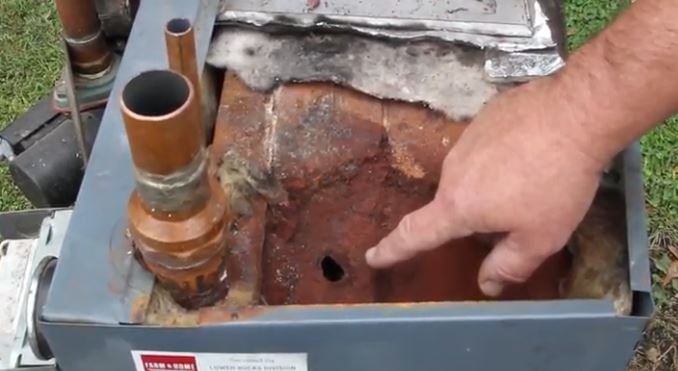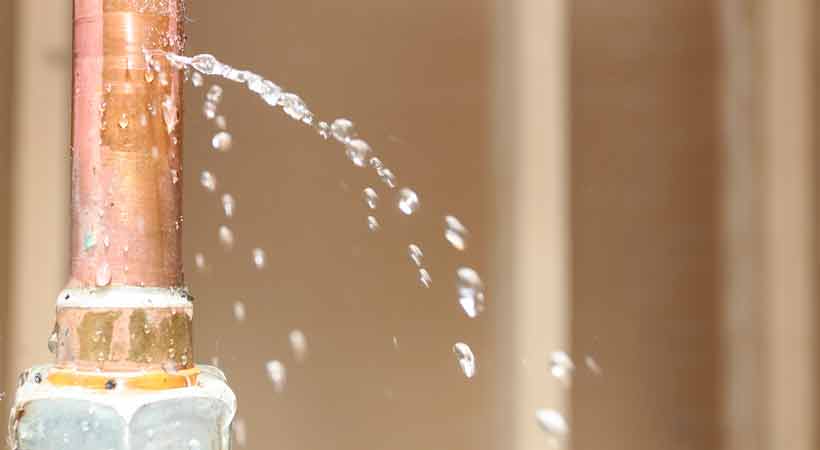Getting through the chilly winter weather can be tough enough -- the last thing you need is a leaky boiler on your hand! If you notice water leaking from your boiler, you're probably wondering what's causing it.
6 Common Causes of Boiler Leaks
Boilers are a popular type of heating system that homeowners rely on to stay toasty warm in the winter. However, like any type of home heating system, they can encounter issues from time to time. One of the most common boiler issues is water leakage, which can be caused by many different reasons. Here are six common causes to look out for:
Loose joints
A water leak around the boiler could be due to loose joints causing issues during hot and cold contraction and expansion. In this case, your local contractor should check all the fittings of the boiler as well as the pipes and tubes that go in and out of it. Make sure to specifically check for a loose or damaged blowdown valve, as this could cause a decent amount of water to build up. It's natural for joints and pipes to become loose over time due to wear and tear, and the solution is simply to tighten them.
Temperature
The temperature control valve (TCV) in your boiler monitors the temperature of the water and stops it from getting too high. If you notice a leak from the TCV, it means the boiler temperature is too high which could cause burning hot water to come out of the taps. You or a technician will need to adjust the temperature to stop the leak.
Corrosion
Corrosion in your boiler often occurs to due unbalanced oxygen and pH levels. This corrosion can eventually cause pipes or entire tanks to weaken, which may result in water escaping over time. If the corrosion is only on one pipe or valve, then you should be able to get away with simply replacing the part to stop the water leakage. If the corrosion has spread throughout the system, on the other hand, it means your boiler will likely need to be replaced.

Click below to see how corrosion led to a leak in our Bristol homeowner's boiler, and how we fixed it for him.

Pressure issues
All boilers are fitted with a special pressure outlet pipe which can occasionally drip water, allowing pressure inside the boiler to escape. This dripping is normal and should be left alone -- blocking off the pipe could result in pressure buildup inside the boiler which could cause it to explode or collapse.
If excess amounts of water are coming out of the outlet pipe, this could mean the pipe is working overtime to relieve pressure, in which case you will need to reduce pressure inside the tank. You can tell if your boiler pressure is too high if the needle on the pressure gauge is pointing anywhere above two or in the upper red zone (the correct pressure is between one and two).
Reducing the pressure can be done simply by bleeding the radiators. To learn how to bleed the radiators yourself, click here. You can also call your local HVAC company to do it for you, or ask them to do it during your annual heater tune-up.
Damaged pump seals
Damage to the boiler seals may be another cause of water leaks around the boiler. Be sure to examine the sides and bottom of the tank to see if the water is actually leaking from the seal. If this is the case, water can escape through normal use or can even be pushed out by the boiler pump. Since the pump's job is to push water around your home's heating system, a broken seal could cause the water to leak out instead. To correct this problem, you should have a professional technician replace both the seals and the pump.
Old age - wear and tear, cracks in the body
Like anything you own, boilers won't work as well as time goes on. As your boiler ages, the repeated contracting and expanding will lead to stress fatigues and damage, and could eventually lead to leaks and system failures. Something like a crack in your boiler can mean expensive repairs; so if your boiler is getting old, replacing it may be the better option. Your trusted HVAC company will be able to recommend repairs versus replacement and help you figure out the best way to move forward.
If you still aren't sure why your boiler is leaking or where the water leak is coming from, don't hesitate to give your local contractor a call. They will be able to confirm what's going on and then provide the right solution.
What Do I Do if My Boiler is Leaking Water?

First and foremost, you should make sure to have annual maintenance performed on your heater. Yearly tune-ups prevent problems from occurring, catch problems before they become worse, and ensure your system is running safely and at maximum efficiency.
Regardless, if you see your boiler is leaking water, there are a few steps you should take:
-
Turn off the water supply.
-
Switch off the heating .
-
Turn off the boiler's electric supply (this will remove the risk of electric shock and reduce the chance of damage to the system).
-
Wipe up any water.
-
Contact a professional HVAC company.
If you live in the Delaware Valley/Greater Philadelphia area and would like to find comfort within your home, visit our website or give us a call at 215 - 245 - 3200 to learn more.





